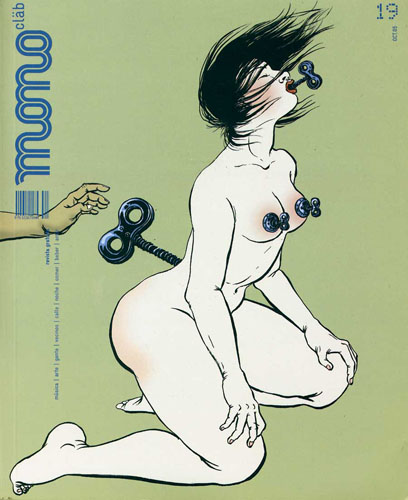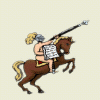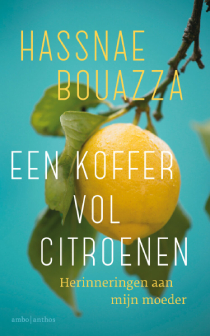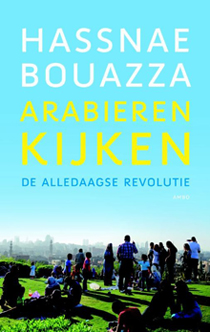Only the dead get closure
Tom Breedveld

Illustratie: Yuko Shimizu
So, this is what the dream feels like. This is the victory we longed for. Niko Bellic’s final words in the video game Grand Theft Auto IV summarize the feeling of disillusionment that is felt by many who pursue the American Dream (according to the creators, at least), and which is the theme of the entire game. The tagline of Grand Theft Auto IV is even: The American Dream can be a real Nightmare (or, in some cases: Welcome to Liberty City, where the only dirty word is Hope; or simply: Things will be different).
The ending of Grand Theft Auto IV, which pulls the rug out from under the player and then some, deserves a closer inspection. Not only because it is a strong slice of social critique, but also to lend credence to the fact that games can be well written, on par with a lot of Hollywood movies, and that video games can be art. Also, because when I first completed the game, I was depressed for weeks, a feat rarely achieved by any other artistic work or medium (except perhaps Kafka’s Der Untergang).
The main game stars illegal immigrant Niko Bellic, a survivor of the Yugoslav Wars, fresh out of Serbia, on the run from a human trafficker, Ray Bulgarin, who believes Niko to be responsible for losing his ‘precious cargo’. Niko escapes to America, regretting his mistakes (his friend Hossan tells him that ‘we all do dumb things. That’s what makes us human,’ to which Niko replies: ‘Could be.’), and hoping to get a fresh start with his cousin Roman, who is already an American immigrant, and a legal one to boot.
Russian mob
Roman is however highly indebted to Albanian loan sharks and their Russian master, and while Niko does his best to help Roman, regrettably only achieving this through violence (‘I promised myself I wouldn’t kill people in this country’ laments Niko after a shakedown turns deadly), the situation escalates to extremes when Roman’s house and taxi business are burned down, and Roman himself is kidnapped and almost killed by the Russian mob, led by Dimitri Rascalov.
(Side note: The mob used to be led by Mikhail Faustin before Dimitri murdered him. The man always seemed to me a dark mirror image of my father; he even looks like him. In a hilariously twisted scene, when Niko is about to have his arm sawn off in Mikhail’s basement, Mikhail objects: ‘My wife is watching television. She can’t concentrate with people screaming in the house.’)
In a tearful monologue about how he ‘slept under his desk for under a year’ to keep his cab business running, only to have it destroyed almost as soon as his hair-trigger tempered nephew Niko shows up and becomes violent, Roman personifies the American Dream, or rather, the harsh unfairness of that system when one doesn’t have the social status or the monetary means to keep it running smoothly. The achievement the player gets for reaching this point in the story, has a picture of a broken American flag.
Blood diamonds
Promising revenge on the Russian man Dimitri Rascalov (a reference to Raskolnikov, the main character of the novel Crime And Punishment, a book with similar themes of unattainable dreams of greatness), Niko lets himself fall into a world of criminality, working for corrupt officials, trying to sell blood diamonds (that, as bad luck would have it, belonged to Ray Bulgarin, who has come to Liberty City to get them back), and dealing in a large amount of heroin. Every attempt at success fails (another theme of the game seems to be that ‘crime is done’ as an undercover FBI agent remarks to Niko), and all of Niko’s partners betray him, leave him for good, or meet bloody and unfortunate ends. When Niko’s girlfriend rats him out to the CIA, and Niko must do undercover work for them so as not to end up in jail or be deported, Niko seems to have run out of options.
Ironically, it is these CIA agents that make Niko do questionable things (like killing a man who was going to release secrets about the American government), that help him in the end. Niko’s contact in the agency, a bespectacled man with no name, tells Niko in Serbian: ‘Welcome to America. Just like home.’ ‘Just like it,’ Niko agrees. Niko tells him of a man who ratted out his platoon during the war back in Serbia, and had most of his friends killed. Only three survived, Niko, a man named Florian Cravic who seems to be the only happy man in Liberty City, having left his past well and truly behind, and a third man, the betrayer. Niko has been searching for this man for a decade, consumed by the idea of revenge. The CIA-agent finds the man for Niko, and has him brought before him, telling Niko that ‘you’re free. Find solace in this final act, then quit the criminal world. I’ve given you a lot of protection, but you’re on your own now. Get out before it’s too late.’
American way of life
– It is interesting to note that in the first expansion pack for the game, it is again an establishment-figure, and a proponent of the American way of life, that ultimately helps the main character the most. Playing as Johnny Klebitz, a motorcycle gang member, he learns from a corrupt senator that he helped stay in power, that his club boss is planning to have him killed. Asking why the man would help him by telling him this, the man replies: ‘I told you. I was good for a favor.’ These men who work for the government and therefore the people, aren’t good men. They have people killed for ‘the greater good’ (their greater good, probably). But by helping the less fortunate, they might show that the idea of being rewarded for persevering is still on the table. In the end, they do seem to have the lives of innocent men at heart. The game leaves it to the player whether this excuse is good enough. –
When Niko is confronted with the betrayer at an abandoned airport, he finds the man is a drug-addled mess, who sold out his friends and cohorts for no more than a thousand dollars to fill his drug need. Niko, filled with despair at this reveal, shouts: ‘You ruined me, you fuck! You sold out my friends, all my friends, for a thousand dollars?’ ‘How much do you ask to kill someone?’ the man mockingly retorts. Roman, who accompanied Niko on this mission, puts his hands on Niko’s shoulder. ‘He knows what he did, cousin. He doesn’t seem to be enjoying life too much. Let’s just go. This won’t help you.’
At this point, the player can choose to let the man live, or shoot him 12 times (one bullet for every friend). Killing the man will end in him thanking Niko for releasing him, and Niko remarking that ‘I feel nothing anymore. I’m empty. Revenge has left me empty.‘ Letting him live will have Niko speaking a few cold words of wisdom to Roman: ‘I was the one who survived… Living is not easy. Revenge would not somehow shut the book on what I have seen. Every part of me that was good and happy stayed behind in that war. Only the dead get closure, the living do not.’ Roman asks him: ‘Will you try to move on? Will you try to live a happier life?’ ‘I’ll try to, yes,’ Niko replies.
American titties
A mob boss whom Niko worked for once or twice, calls Niko with a proposition: A lot of money in exchange for overseeing a heroin deal with Dimitri Raskalov. Niko (therefore, the player) can choose: set his principles aside in exchange for working with his enemy and gaining a large amount of money, or gain revenge on the rat who ruined the life of him and his cousin. Niko’s new girlfriend, Kate, threatens to leave him if he goes against his convictions and works with the man, and Roman asks Niko to forgive and forget, like he has, and get a lot of money in the process (‘A honeymoon is expensive!’ is his argument, as Roman has recently gotten engaged to his Puerto Rican girlfriend, Mallorie).
The first time I had to make this choice, I chose Roman’s side. I made the deal, was betrayed (again) and had to watch Roman be gunned down by a killer, hired by an escaped Dimitri, on the day of his wedding. Roman, the man who through the entire game was the voice of reason to Niko’s bellowing of despair, and who was a funny, kindhearted man who loved bowling and ‘American titties’, as he called them.
Having played the game recently with a good friend who also is the eternal happy man to my Pagliacci, the situation hits home even more these days. Never before has the death of a character felt more real or undeserved. The man simply wanted to take his wife on a honeymoon, and see his nephew forget about revenge, after the last time ended disastrously. His pursuit of money and refusal of revenge was, just this once, not a staple of American greed, but of wanting the best for his love. In a typical Morton’s Fork situation (the other choice would have seen Dimitri dead, but the mob boss furious at a ruined deal, killing Kate in revenge; the situation is desperately unwinnable be design), this is still obviously the greater of two evils.
Statue Of Happiness
Niko, furious with rage, slaughters the assassin. Roman’s crying bride tells Niko that she is pregnant. The pain in Niko’s voice says it all as he asks her: ‘A child?’ She nods yes. ‘The baby will never want for anything,’ Niko assures her. ‘A child without a father has a lot to want for,’ Mallorie replies.
Seeing red with revenge, Niko pursues Dimitri. In an intense chase by car, helicopter, motorbike and boat, he ends up having a major shootout at the foot of the Statue Of Happiness, a stand in for the Statue Of Liberty. Eventually, with Dimitri bleeding out and swearing revenge, Niko slumps down, and asks him: ‘You betrayed every one you ever met. You are a sad, strange man. Roman never hurt anyone.’
Executing Dimitri, Niko just stands there, tired, broken and alone. His partner, who was his back-up during the ordeal and friend for most of the game, walks up to Niko. ‘It’s over, Niko! You did it!’ ‘Oh yeah?’ asks Niko. ‘What did I do?’ ‘You won! Now you are free! Now you can leave it behind. We have to go Niko, the police are coming…’ ‘I won?’ echoes Niko. ‘I won?’ As the police sirens get louder and S.W.A.T. teams close in, Philip Glass’s Pruit Igoe starts up, and the camera slowly pans up towards the Statue Of Liberty, it’s torch a beacon for immigrants entering the country to pursue the Dream and have a new, better life. Cut to black. Credits.
So, this is what the dream feels like. This is the victory we longed for. After the game is over, there isn’t much left to do for the player that holds a lot of substance. The same probably counts for Niko, whose life has lost all meaning. Two expansion packs would eventually close the GTA IV-saga, always ending on the same note: Leave the past behind. As much as it is possible, move forward. Find solace in friends and family. ‘The past is all I have,’ muses Niko as one point in the game. Knowing this, it seems that in retrospect, he was doomed from the start.
Tom Breedveld (1994) is film student by day, crime-fighter by night. He’s also a smart-ass.
English, Games, Tom Breedveld, 07.05.2016 @ 07:40






 RSS
RSS